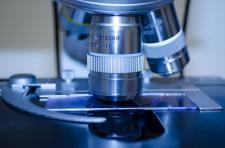If we don’t own our genes, what protects study subjects in genetic research?
By Leslie E. Wolf, Erin Fuse Brown, and Laura Beskow,
The Conversation
| 03. 28. 2016
On February 25, the White House hosted a forum on the National Institute of Health’s Precision Medicine Initiative. This is an ambitious research study that aims to develop targeted drugs and treatments that would vary from individual to individual.
To reach the goal of eventually being able to make specific recommendations for patients based on their own combination of genes, environment and lifestyle, researchers plan to collect that kind of information from one million Americans. The study is so large so results can account for diversity among Americans with respect to factors such as ancestry, geography, and social and economic circumstances.
At the forum, President Obama remarked “I would like to think that if somebody does a test on me or my genes, that that’s mine.”
Lots of people would make that same assumption – it seems sensible that we would each “own” our genetic information. But the legal reality is quite different. And that could turn out to be a problem, because research projects like the Precision Medicine Initiative rely on research participants trusting that their...
Related Articles
By Pete Shanks
| 02.27.2026
Last month, we published “The Shameful Legacy of Tuskegee” which focused on a proposed experiment in Guinea-Bissau. The study’s plan echoed the notorious Tuskegee disaster, withholding safe, effective vaccines against hepatitis B from some newborns while inoculating others. It was to be financed by the U.S. but performed by a controversial Danish team. That project provoked a multi-national outcry, leading to a remarkable response from the World Health Organization:
WHO has significant concerns regarding the study’s scientific...
By Jenn White, NPR | 02.26.2026
By Kiana Jackson and Shannon Stubblefield, New Disabled South | 02.09.2026
"MC0_8230" via Wikimedia Commons licensed under CC by 2.0
This report documents a deliberate assault on disabled people in the United States. Not an accident. Not a series of bureaucratic missteps. An assault that has been coordinated across agencies...
By Scott Solomon, The MIT Press Reader | 02.12.2026
Chris Mason is a man in a hurry.
“Sometimes walking from the subway to the lab takes too long, so I’ll start running,” he told me over breakfast at a bistro near his home in Brooklyn on a crisp...




